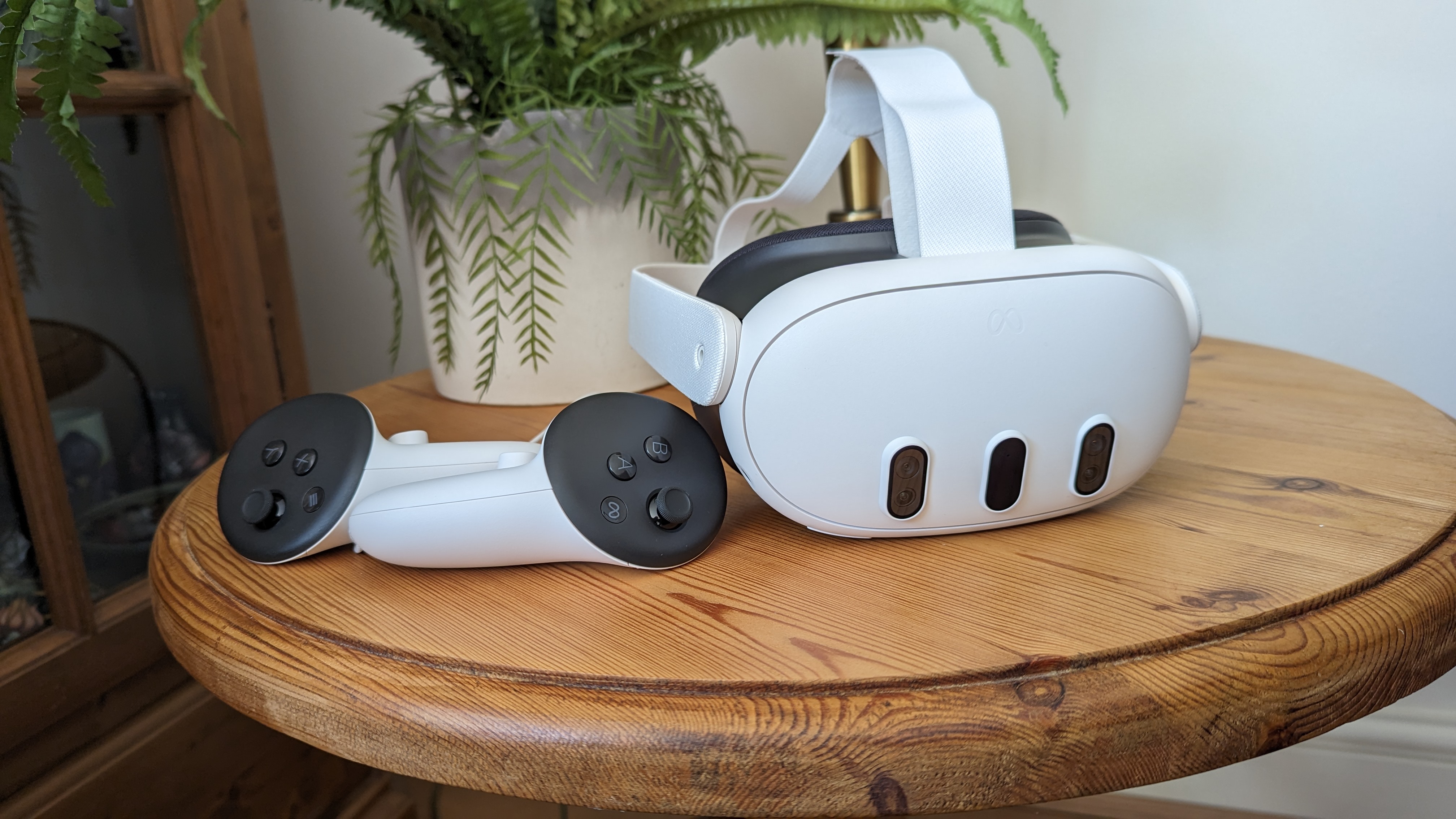Sony’s PSVR 2 has been available for just over a year now, originally launching on February 22, 2023. Thus we’ve had plenty of time to analyze the state of the PS5 exclusive VR headset; where it’s been, and where it’s going in the future. In short, it’s not been great, and it certainly doesn’t look good.
While an excellent bit of kit in its own right with specs that compete with some of the best VR headsets out there, things haven’t looked too bright on the software side of things. Its price remains a sticking point, too, especially as the Meta Quest 3 – a much more compelling headset right now – largely outclasses it in terms of both price and versatility.
But perhaps that’s a little unfair. Sony has, after all, recently announced that it’s been working on getting PSVR 2 compatible with PC – though in what capacity remains to be seen. As a result, though, this could mean that PSVR 2 has a decent life ahead of it. But at present, there’s simply very little reason to own Sony’s headset unless you’re desperate to play a relatively modest number of exclusive games.
Where are the exclusives?
Let’s begin at launch. PSVR 2 did have a fairly impressive launch line-up, spearheaded by Horizon: Call of the Mountain which I genuinely believe to be not only the best game in the series but an excellent VR exclusive in its own right. It’s a highly polished offering, featuring varied and energetic play paired with a slew of welcome accessibility options.
Unfortunately, most other PSVR 2 games at launch weren’t exclusive to the headset, and can also be found within the Meta Quest and Steam VR game libraries. These include Kayak VR, Townsmen VR, and Puzzling Places. All wonderful titles in their own right, just not what you’d call flagships or system sellers.
The headset did pick up steam somewhat in the following months, with fully-featured VR modes for Gran Turismo 7, Resident Evil Village, and Resident Evil 4. These were all free additions, too, baked right into the base games themselves. Following these, further VR exclusives launched in the form of Humanity, The Dark Pictures: Switchback VR, Synapse and C-Smash VRS.
So while PSVR 2’s exclusives line-up isn’t predominantly made up of PlayStation Studios titles, I don’t think the ‘lack of exclusives’ argument holds up quite as well now as it may have done half a year ago. Even though some experiences are complementary VR modes, I believe they can still be counted as their own thing, and as such there are plenty of exclusives to enjoy for PSVR 2 in 2024.
PSVR 2’s potential shift to PC (and away from PS5)

Recently, Sony confirmed that it’s testing support for “additional games on PC.” The announcement was quietly snuck into an official PlayStation Blog post, and the wording is quite vague. Among the best-case scenarios would be full parity with Steam VR titles.
That would mean having access to superb VR games like Half-Life: Alyx and Boneworks without needing to shell out for another headset like Valve Index. However, as PSVR 2 doesn’t have mixed reality (tech that imposes virtual elements over your real-world surroundings) support, such experiences likely won’t be available to it on PC.
Sony hopes to make this PC support available sometime in 2024, so PSVR 2 could have a bright future ahead of it away from PS5. However, that’s only one side of the coin. The other is potentially much bleaker, signaling an end for PSVR 2 support on its native console.
There is some evidence that this could be happening right now. Another recent harrowing round of layoffs saw Sony cut about 8% of its workforce; roughly 900 employees. Much of these were from studios like UK-based Firesprite, developer of the aforementioned Horizon: Call of the Mountain. Furthermore, PlayStation’s London Studio has been shuttered entirely. The developer had previously made VR projects like Blood & Truth and PlayStation VR Worlds. As a result, much of Sony’s VR talent has now been, or will be, let go.
While this doesn’t necessarily mean that we shouldn’t expect more first-party PSVR 2 exclusives, it’s a sign that Sony could be scaling back in-house software development for its VR headset.

Easily the greatest threat to PSVR 2’s place in the market is the Meta Quest 3. And there are plenty of reasons as to why this is the case, and why the Quest 2 successor sits atop our best VR headsets list.
In terms of specs, PSVR 2 and Quest 3 are actually quite similar on paper. While I prefer PSVR 2’s vivid OLED display, Quest 3 has it beat in the resolution department coming in at 2,064 x 2,208 pixels per eye. This offers a slightly sharper image than PSVR 2’s 2,000 x 2,040. Elsewhere, both are capable of refresh rates up to 120Hz.
While both headsets feature a passthrough camera – making it easy to view your real-world surroundings at the touch of a button – it’s much more fleshed out on Quest 3. Meta’s headset supports mixed reality experiences which also makes it a better fit for productivity and leisure apps. There’s something of a trade-off here with PSVR 2, which has integrated eye tracking features that Quest 3 lacks. This lets you use your eyes as a cursor, or for various gameplay elements such as focusing on certain objects.
…there’s not much of a reason – at least right now – to purchase a PSVR 2 over a Meta Quest 3.
Where Quest 3 really wins out, however, is in price and versatility. PSVR 2 will run you $549.99 / £529.99, a bit more than Quest 3’s retail price of $499.99 / £479.99. That doesn’t sound like much of a difference at first inspection, but it’s worth noting that, at present, PSVR 2 requires a PS5 in order to, well, function. As a result, the combined investment reaches the $1,000 / £1,000 threshold, and that’s before you’ve purchased any additional games or PSVR 2 accessories.
There’s no such restriction with Meta Quest 3. You buy the headset, and it can be used either standalone (wirelessly at that) or hooked up to your PC. It’s also compatible with Meta’s own game and app library, as well as that of Steam VR.
In conclusion, there’s not much of a reason – at least right now – to purchase a PSVR 2 over a Meta Quest 3. It’s possible that Sony is well aware of this, and could be cutting its losses by sunsetting official support and looking into PC compatibility. In fairness, being able to use PSVR 2 on both PS5 and PC would increase its value proposition exponentially. But I don’t think this will be enough; a slight price cut – perhaps something more in line with the Quest 3 – would make it even more appealing.
But until that time, the Quest 3 is a much better option if you’re getting into VR for the first time. Unless you’re desperate for that OLED display or bespoke eye tracking, the Quest 3 remains our headset of choice in 2024. There’s been highlights for PSVR 2, certainly, but as competing headsets offer more for less, it’s got a seemingly impossible second year ahead of it.
Get a wider look at the best VR games with our handy guide, allowing you to prepare for PSVR 2’s PC support, or simply to expand your current virtual reality library.
